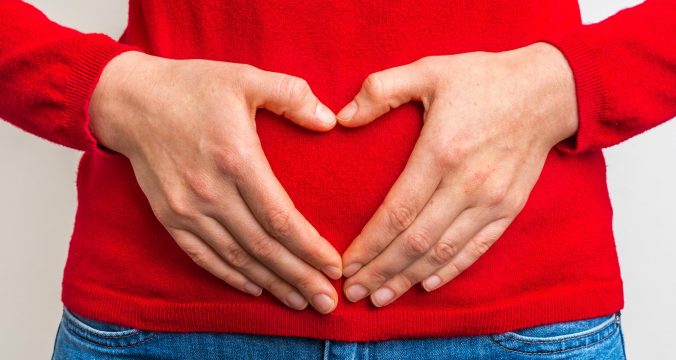A troubled intestine can send signals to the brain, just as a troubled brain can send signals to the gut. Therefore, a person’s stomach or intestinal distress can be the cause or the product of anxiety, stress, or depression. That’s because the brain and the gastrointestinal (GI) system are intimately connected.
We have around 100 trillion micro-organisms in our body, most of them bacteria, but also viruses, fungi, and protozoa. While some micro-organisms are harmful to our health, many are incredibly beneficial and even necessary to a healthy body and mind. Most of them live in our digestive system, (commonly referred to as our ‘gut’), which consists of a group of organs that includes the mouth, oesophagus, stomach, pancreas, liver, gallbladder, small intestine, large intestine (colon), and rectum. Not only is it the body’s primary way of taking in and absorbing nutrients, the gut also functions as one of the body’s front lines in the fight against disease; it produces vitamins and hormones; and it acts as a type of switchboard or communication centre to and from the brain.
How does our gut bacteria affect our health?
Our guts are ruled by ‘good’ and ‘bad’ bacteria, and each of us has his or her unique mix. Many facets of modern life such as high stress levels, too little sleep, taking anti-biotics, eating processed and high-fat/high-sugar foods, can all damage our gut microbiome (the collective term for vast numbers of micro-organisms). This in turn may affect other aspects of our health, such as the brain, heart, immune system, skin, weight, hormone levels, ability to absorb nutrients, and even the development of cancer.
What about our diet?
There are 300 to 500 different kinds of bacteria living in our gut. Each species of bacteria requires different nutrients to grow, so the food that we eat has a huge impact on the types of bacteria that live inside us. Generally speaking, the more species of bacteria we have in our gut, the thicker the mucus wall, the greater the health benefits – so a varied diet is very important. Lower diversity is considered a marker of dysbiosis (microbial imbalance) in the gut, and studies have shown that the variety of gut microbiota is much lower in people living in the West than in people from rural regions who have not yet been influenced by Western eating habits. However, research shows that a change in diet can quickly change things for the better…..or worse.
Good bacteria
Some gut bacteria (or the right amounts of these bacteria), helps us to fight disease and stay healthy by protecting us from infection, regulating blood sugar, reducing cholesterol, strengthening the immune system, and supporting the production of brain development and behaviour.
Gut bacteria and disease
Research suggests the gut bacteria in healthy people are different from those with certain diseases. People who are sick may have too little or too much of a certain type.
Scientists have begun to draw links between the following illnesses and the bacteria in our gut:
Obesity , type 2 diabetes, and heart disease: Our gut bacteria affect our body’s metabolism. They determine things like how many calories we get from food and what kinds of nutrients we draw from it. Too much gut bacteria can make us turn fiber into fatty acids. This may cause fat deposits in our liver, which can lead to something called Metabolic Syndrome – a condition that often leads to obesity, type 2 diabetes, and heart disease. A review of 14 studies carried out this month (available here) concludes that further research is necessary to fully understand the effect of the gut microbiome on obesity. So for the time being, a healthy, mainly plant-based diet (see ‘Conclusion’ below) and regular exercise is still the recommended way to maintain a healthy weight.
Inflammatory bowel diseases, including Crohn’s disease and ulcerative colitis: People with these conditions are believed to have lower levels of certain anti-inflammatory gut bacteria. The exact connection is still unclear. But it’s thought that some bacteria may make our body attack our intestines and set the stage for these diseases. Recent research (available here) looks at an enzyme called urease.
Colorectal cancer: It’s the third leading cancer in humans and the fourth most common cause of cancer-related death. A recent study shows that people with this condition have a different gut microbiota, incorporating higher levels of disease-causing bacteria, than healthy people.
Anxiety, depression, and autism: The gut is packed with nerve endings that communicate with the brain. Doctors call this connection the ‘gut-brain axis’ because studies have suggested a link between gut bacteria and disorders of the central nervous system, like anxiety, depression, and autism spectrum disorder. Serotonin is a neurotransmitter that helps regulate sleep and appetite, mediate mood, and inhibit pain. Since about 95% of our serotonin is produced in our gut, it follows that our diet can also affect our mental health. In a recent study, volunteers reported that probiotic therapy was just as effective as Citalopram and Diazepam in reducing depressive symptoms.
Arthritis: It’s thought that people with rheumatoid arthritis may have a low diversity of gut microbiota, and greater amounts of bacteria linked to inflammation than people without it.
Five ways to improve gut health
1) Prebiotics: These are mainly fiber or complex carbohydrates that can’t be digested by human cells, but can be processed by certain bacteria in our gut, which stimulates their growth.
Inulin is found in many plants and is also available as a supplement. By ‘fertilising’ our existing gut bacteria, Inulin and other prebiotics encourage the development of a diverse community of microbes including bifidobacteria, which can reduce insulin, triglycerides and cholesterol levels, and may reduce the risk factors for many diseases associated with obesity, including heart disease and diabetes. Convincing evidence shows that a low-fibre Western diet degrades the colonic mucus barrier, causing microbiota encroachment, which results in pathogen susceptibility and inflammation, linking the Western diet with chronic diseases. Many fruits, vegetables and whole grains contain prebiotic fiber, particularly asparagus, chicory root, oats, berries, bananas, artichokes, garlic, leeks, onions, chickpeas, lentils and beans (kidney, pinto and white).
2) Spice up your diet: Spices good for our gut bacteria include turmeric, chilli, cumin, cinnamon, and paprika. These popular spices have all been found to have a proven effect on reducing inflammation in the gut, which allows for a greater cultivation of bacteria, leading to a healthy gut.
3) Polyphenols: These are chemicals found in plants that have many health benefits, including reductions in blood pressure, inflammation, cholesterol levels and oxidative stress.
Polyphenols can’t always be digested by human cells, so most make their way to the colon, where they can be absorbed by gut bacteria which has been found to improve the gut lining and promote a healthy microbiota. Try and incorporate a portion of dark chocolate, broccoli, berries, onions, green tea, or red wine into your daily diet.
4) Probiotics: These foods contain good bacteria strains including bifidobacteria, streptococcus, and lactobacilli, which will thrive in our gut and fight off bad bacteria. Try to eat a portion of fermented foods such as yogurt, kefir, kombucha, kimchi, sauerkraut, miso, and tempeh on a regular basis. Probiotics are also available in the form of supplements from most supermarkets and pharmacies.
5) Things to avoid: Drugs including antibiotics, osmotic laxatives, progesterone, TNF-α inhibitors, rupatadine, and proton pump inhibitors have been shown to disrupt the balance and diversity of gut microbiota, as have sugar alternatives such as sucralose, aspartame, and saccharin, and food additives such as emulsifiers, which are abundant in processed foods. (If you are concerned that your medication could be upsetting your gut, discuss with your doctor before making any changes).
Gluten-free foods should also be avoided unless you have coeliac disease or a proven intolerance. A large observational study showed an increased risk of heart disease in gluten avoiders, potentially because of the reduced consumption of whole grains.
Conclusion
The evidence suggests that a healthy gut is key to our overall health and longevity. A Western diet that’s high in fat and sugar and low in fibre can kill certain types of gut bacteria, making our microbiota less diverse.
Eating a nutritious diet high in fibre-rich foods, such as fruits, vegetables, legumes, and whole grains can quickly improve our gut microbiome.
We should limit the use of antibiotics, which can wipe out healthy bacteria along with problematic bacteria, to only when necessary as determined by our doctor.
Research suggests the use of prebiotics or probiotic bacteria strains, or faecal microbiota transplantation via capsules, has the potential to re-balance our gut microbiome and prevent a range of illnesses.

